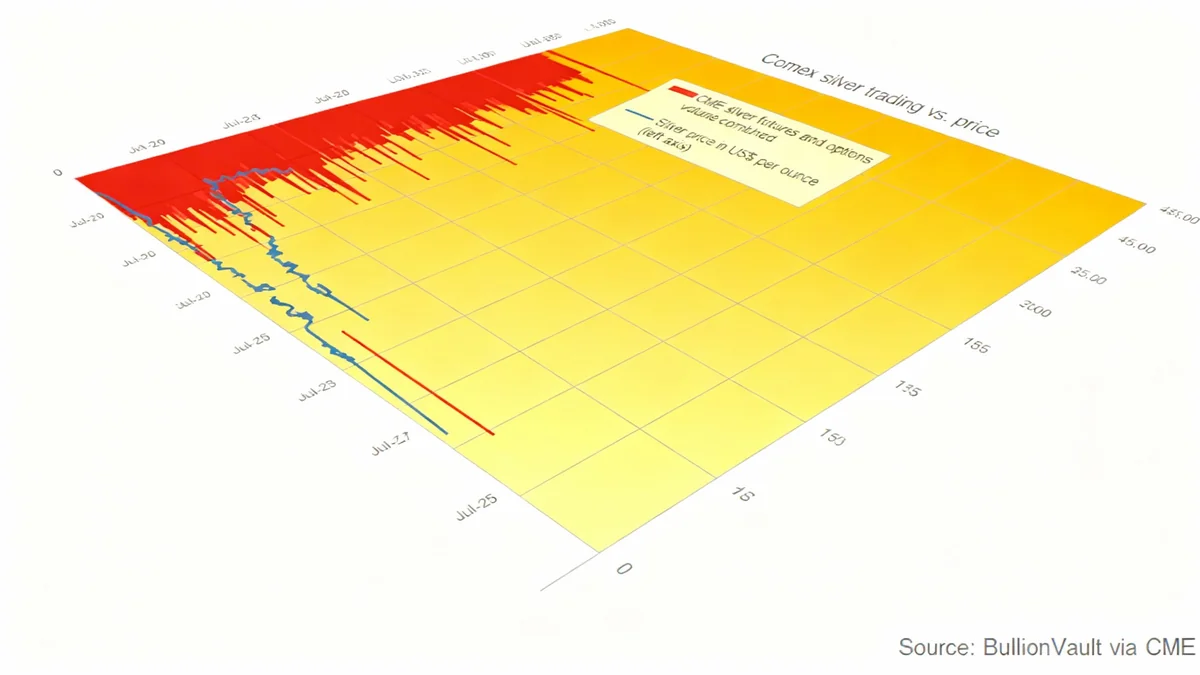Global financial markets are on high alert this week as four major G10 central banks prepare to announce key monetary policy decisions. The outcomes could set the tone for the final quarter of the year, with investors particularly focused on communications from the U.S. Federal Reserve and the Bank of Canada.
This series of high-stakes meetings comes at a critical juncture for the global economy. With persistent inflation and signs of slowing growth, market participants are looking for clear guidance on interest rates and future policy paths, creating the potential for significant market volatility.
Key Takeaways
- Four central banks from the Group of Ten (G10) nations will hold policy meetings this week.
- The U.S. Federal Reserve and the Bank of Canada are expected to be the most influential market movers.
- Market expectations are high for specific policy actions, creating risk if central banks deliver a surprise.
- The Fed's decisions will be closely watched, guided by its frequently stated "data-dependent" approach to policy.
A Pivotal Week for Global Monetary Policy
The week ahead is shaping up to be one of the most consequential periods for financial markets in the fourth quarter. The synchronized nature of these meetings puts global monetary policy trends under a microscope. Investors will be scrutinizing every statement for clues about whether the world's leading economies will continue to tighten financial conditions or pivot towards a more cautious stance.
While each central bank addresses its own domestic economic challenges, their decisions have far-reaching international implications. A hawkish stance from one major bank can strengthen its currency and influence capital flows, putting pressure on others to follow suit or risk currency depreciation.
What is a G10 Central Bank?
The Group of Ten, or G10, refers to a group of eleven industrialized nations that consult and cooperate on international financial matters. Their central banks are among the most influential in the world, and their monetary policies have a significant impact on global markets. The members include the United States, United Kingdom, Japan, Germany, France, Italy, Canada, the Netherlands, Belgium, Sweden, and Switzerland.
The Federal Reserve's Data-Dependent Stance
All eyes will be on the U.S. Federal Reserve. The Federal Open Market Committee (FOMC) has repeatedly emphasized that its decisions are not predetermined but are instead guided by the latest economic information. This approach makes every major data release a significant market event.
"We are data-dependent."
This simple phrase, often repeated by Federal Reserve Chair Jerome Powell, underscores the central bank's current operating principle. It means that recent figures on inflation, employment, and consumer spending will be the primary drivers of the committee's decision-making process. Traders and economists have been parsing this data for weeks, trying to anticipate the Fed's next move.
The core challenge for the Fed is balancing the fight against inflation with the need to avoid triggering a sharp economic downturn. Any deviation from market expectations, either in its interest rate decision or its forward-looking guidance, could send shockwaves through equity, bond, and currency markets.
Spotlight on North America
Alongside the Federal Reserve, the Bank of Canada (BoC) is also scheduled to make a crucial policy announcement. The Canadian economy faces similar pressures to the U.S., including stubborn inflation and a cooling housing market. The BoC's actions are often seen as a bellwether for North American economic trends.
Markets have priced in a high probability of a specific outcome from the BoC, but as with the Fed, any surprise could lead to a rapid repricing of assets. The interplay between the Fed's and the BoC's decisions will be particularly important for the USD/CAD currency pair, a key indicator of economic sentiment in the region.
Why Central Bank Meetings Matter
Central banks control the supply of money in an economy. By raising or lowering interest rates, they can influence the cost of borrowing for consumers and businesses. These decisions impact everything from mortgage rates and corporate investment to stock market valuations and currency strength.
Navigating the Uncertainty
For traders and investors, weeks like this highlight the critical importance of preparation and risk management. The potential for sudden, sharp market movements means that having a robust strategy is essential. This extends to the tools and platforms traders use to execute their plans.
An individual's trading strategy is only as effective as the platform it is implemented on. In a volatile environment, access to reliable data, fast execution speeds, and advanced risk management tools can be the difference between capitalizing on an opportunity and suffering a significant loss. A platform lacking essential features can impose hard limits on a trader's ability to react to fast-moving events.
As central bankers deliberate, market participants must ensure their own systems are ready to handle whatever outcomes are announced. This includes:
- Setting clear risk parameters: Defining maximum loss levels before entering a trade.
- Using stop-loss orders: Automating trade exits to protect capital.
- Staying informed: Monitoring news feeds and economic calendars for breaking developments.
- Avoiding over-leverage: Using borrowed funds cautiously to mitigate the impact of sharp price swings.
Ultimately, this week serves as a powerful reminder that global markets are deeply interconnected. Decisions made in Washington or Ottawa will ripple across the world, influencing investment portfolios and economic outlooks from Tokyo to Frankfurt. Investors will be watching, waiting, and preparing for the impact.





